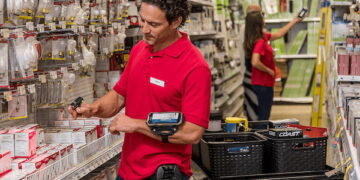Crédito: fuente
TOKYO — After days of record coronavirus counts and a rapidly rising death toll, Japan said it would declare a state of emergency in Tokyo and three surrounding prefectures on Thursday, the country’s first such declaration since April.
The announcement came five days after governors from the affected prefectures had pleaded with the central government to act, and after Prime Minister Yoshihide Suga’s own coronavirus expert panel had recommended the emergency declaration, citing explosive growth in infections in the vast capital region.
Deaths from the virus in Japan have doubled in less than two months, passing 3,700, and Tokyo’s governor has warned that the medical system is under stress. Mr. Suga had hesitated to invoke the emergency measure, hoping to preserve economic activity, but eventually bowed to the pressure from the Tokyo-area officials, as polls show widespread dissatisfaction with his four-month-old administration and its handling of the pandemic.
Mr. Suga’s foot-dragging illustrated the difficult choices many world leaders face nearly a year into a pandemic that is now entering a grueling new phase, with widespread vaccinations still months away. They are under pressure to bring down rising caseloads despite public fatigue over virus restrictions, while also breathing life back into their economies.
Health experts warned that the emergency declaration, which will last one month, still might not be enough to turn the tide.
The declaration carries little legal heft and relies mostly on voluntary compliance. The government is asking restaurants in Tokyo, Chiba, Kanagawa and Saitama Prefectures to close by 8 p.m., employers to encourage staff members to work from home, and residents to refrain from going out for all but the most essential tasks, also after 8 p.m. Schools, museums, cinemas, gyms and shops will remain open.
In comments to reporters after the government’s expert panel recommended the move on Tuesday, Shigeru Omi, the head of the panel, said that declaring a state of emergency would not guarantee a slackening in the rate of infection.
“It’s not possible to control in a couple of weeks, or less than a month,” Mr. Omi said. “Stronger measures might be needed.”
Japan has reported a total of 258,393 cases, far fewer than many Western countries. After it emerged in May from its previous, brief state of emergency, it held up what it called the “Japan model”: an intense focus on contact tracing and cluster-busting, widespread mask wearing, and as few restrictions on the economy as possible.
But as Japan has experienced several record-setting days for new infections since late last month — Tokyo reported over 2,000 cases on Thursday, and the country a record 5,953 — its coronavirus-fighting model has come under strain. Japan is not expected to start inoculating the public until at least the end of February, a process that will take months.
“We are having too many cases to trace right now, and the state of emergency is coming too late,” said Fumie Sakamoto, an infection control manager at St. Luke’s International Hospital in Tokyo. “It’s better now than never, but it should have been declared probably in the fall last year.”
Ms. Sakamoto said the hospital’s intensive care beds and general wards were full. “We can’t take any more patients at this time,” she said. “I think a lot of hospitals that take in Covid patients are in the same situation right now.”
Japan has taken gradual steps since late last month, when it first detected cases of the more transmissible variant of the coronavirus that first emerged in Britain. The government closed the borders to new foreign travelers, and Mr. Suga suspended subsidies for a domestic travel program after weeks of resistance.
Legally, the state of emergency announced on Thursday carries no legal power to force businesses to close early, but Mr. Suga has said the government will consider amending the law to allow local authorities to penalize businesses that do not comply with official requests. The government has also said it would compensate businesses that close early or follow other requests to restrict operations.
Mr. Suga has weighed such new enforcement powers as the public has quickly soured on his administration. Close to 60 percent of respondents in a poll by Nikkei and TV Tokyo late last month said they did not approve of the government’s handling of the pandemic. Just 42 percent said they supported Mr. Suga’s administration, down from nearly three-quarters in September, when he became prime minister.
Some political analysts said Mr. Suga and his Liberal Democratic Party were more beholden to business interests than the general public.
“The L.D.P. traditionally has not been a party for the ordinary Japanese voter,” said Amy Catalinac, an assistant professor of politics at New York University. “It’s been the party for its various interest groups and supporters,” many in the restaurant and travel industry that would be negatively affected by requests to curtail activities, she continued.
The time has now come, some analysts said, for the government to recalibrate its priorities.
“It just shows you how hard it is to break away from this mind-set that they’ve had pretty much for the last year that we’re going to find a balance between public health and economic growth and we’re going to keep trying to thread that needle,” said Tobias Harris, an expert on Japanese politics at Teneo Intelligence in Washington.
“It’s certainly possible that Suga can get through this if numbers start to improve, you start getting the vaccine distributed, weather changes and somehow muddling through without a wider-scale state of emergency or taking actions that could really impact the economy,” Mr. Harris said. “It’s running a pretty big risk.”
Some economists, however, said that given that Japan’s level of infections was still much lower than in Britain, continental Europe or the United States, any restrictions would unnecessarily damage an already battered economy.
“Of course, it’s a problem if the numbers of infections and deaths increase, but I don’t think the current numbers are serious to that extent,” said Taro Saito, an executive research fellow at NLI Research Institute in Tokyo. “I think this is an overreaction.”
Consumption in Japan could fall by 1.7 trillion yen ($16.5 billion) in a month under the emergency conditions, according to an estimate by Toshihiro Nagahama, chief economist at Dai-ichi Life Research Institute.
Nevertheless, Mr. Nagahama believes the emergency declaration is necessary to reduce infections and prevent a collapse of the medical system.
As Japan enters the difficult winter months of the pandemic, relief remains a somewhat distant prospect. The country has not yet approved any of the vaccines that are being rolled out in the United States, Europe and other parts of the world. It has contracts to buy doses from Pfizer, Moderna and AstraZeneca.
Still, the nation has a pressing reason, beyond saving lives, to stop new infections from spiraling: It is hoping to host the postponed 2020 Olympics this summer.
The biggest targets of the state of emergency will be restaurants. With a large majority of the public wearing masks on trains, at stores and in schools, experts have said that a significant share of transmissions was likely to be taking place during indoor dining, when people must take off their masks to eat.
With a request to close by 8 p.m., Takayuki Kojima, 56, manager of Platinum Lamb, a grilled meat restaurant in Shimbashi, a popular Tokyo neighborhood for after-work gatherings, said the restrictions would deprive businesses like his of their most popular operating hours.
“It’s the busiest time,” Mr. Kojima said. “Honestly, I feel like we are being told to stop running the business” altogether. He said many restaurants may go bankrupt. In addition to the restricted opening hours, he said, many of his usual customers will now be working from home.
Keiji Dobashi, 46, manager of Itamae Baru, a Japanese restaurant in Ginza, a popular shopping and nightlife district in central Tokyo, said that many sectors aligned with the restaurant business would suffer, including fish, vegetable and meat vendors, liquor shops, florists, uniform makers and even companies that manufacture the small hand towels known as oshibori, which restaurants provide to all customers before serving a meal.
But Mr. Dobasi said he was resigned to the restrictions. “I don’t think we have any other choice,” he said. “Until the pandemic is controlled, the economy won’t recover.”








